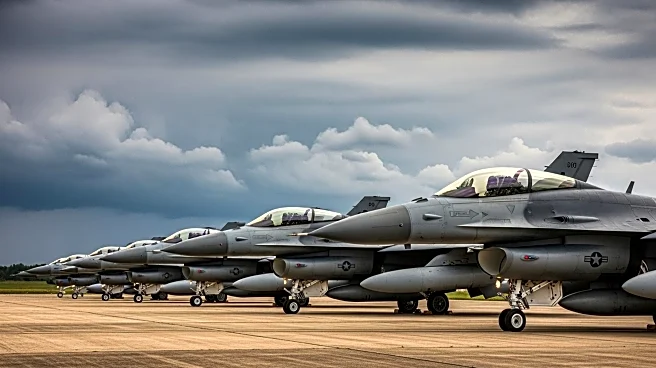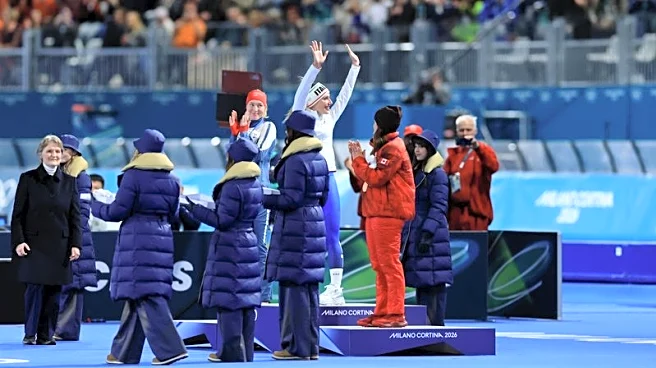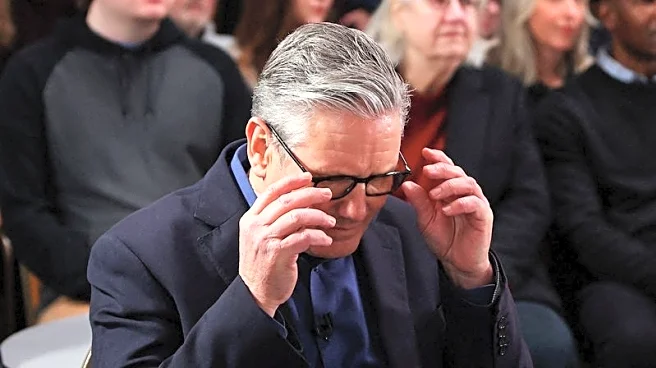What's Happening?
Poland's military has heightened its air defenses and scrambled fighter jets following Russian strikes across Ukraine. The Polish military announced that its radar systems and ground-based air defenses were placed on the highest alert after Russia launched extensive drone and missile attacks. Despite the heightened alert, Poland later confirmed that no violations of its airspace were detected, and operations returned to normal. The Netherlands contributed F-35 stealth fighter jets as part of NATO's air policing efforts in Poland. Russia's attacks resulted in the deaths of at least five people, including a family of four near Lviv, and targeted critical infrastructure across nine regions in Ukraine.
Why It's Important?
The incident underscores the ongoing tension between NATO and Russia, particularly as Russian strikes approach NATO territories. Poland's response highlights the alliance's commitment to defending its airspace and the collective security obligations under Article 5. The strikes on Ukraine's infrastructure could further strain relations between Russia and NATO countries, potentially leading to increased military readiness and diplomatic pressure. The situation also raises concerns about the safety of civilians in Ukraine and the broader implications for European security.
What's Next?
The escalation may prompt further diplomatic efforts from NATO and the U.S. to address the conflict. Discussions around providing Ukraine with long-range missiles, such as American Tomahawks, could intensify, potentially altering the dynamics of the conflict. Russia has warned that such actions would escalate tensions and require direct U.S. involvement. The international community may increase pressure on Russia, particularly regarding its energy revenues, to deter further aggression.
Beyond the Headlines
The strikes and subsequent military responses highlight the fragile state of peace efforts in the region. The potential provision of long-range missiles to Ukraine could shift the balance of power and provoke a stronger reaction from Russia. The situation also reflects the broader geopolitical struggle between Western nations and Russia, with implications for global security and energy markets.










